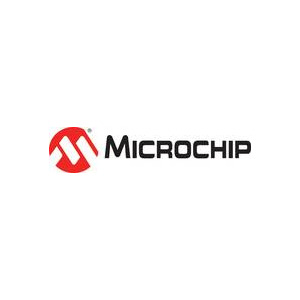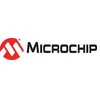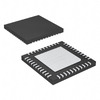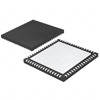Manufacturer Part Number
PIC24EP64MC204-E/ML
Manufacturer
microchip-technology
Introduction
The PIC24EP64MC204-E/ML is a 16-bit microcontroller from Microchip Technology's PIC24EP series. It features a PIC core, 64KB of FLASH program memory, and 4KB of RAM, making it a powerful and versatile option for embedded system designs.
Product Features and Performance
16-bit PIC core with 60 MIPS performance
64KB FLASH program memory
4KB RAM
Peripheral set includes I2C, IrDA, LIN bus, QEI, SPI, UART/USART
Integrated peripherals such as Brown-out Detect/Reset, DMA, Motor Control PWM, POR, PWM, and Watchdog Timer (WDT)
35 I/O pins
9-channel/12-bit ADC
Internal oscillator
Product Advantages
High performance 16-bit PIC core
Ample program and data memory
Comprehensive peripheral set for broad application support
Automotive-grade qualification (AEC-Q100)
Wide operating temperature range (-40°C to 125°C)
Key Reasons to Choose This Product
Powerful 16-bit architecture with 60 MIPS performance
Extensive peripheral integration for versatile system design
Automotive-grade qualification for reliable operation in harsh environments
Competitive pricing and readily available from Microchip
Quality and Safety Features
Automotive-grade qualification (AEC-Q100)
Wide operating temperature range (-40°C to 125°C)
Brown-out detection and reset
Compatibility
The PIC24EP64MC204-E/ML is compatible with other PIC24EP series microcontrollers, allowing for easy migration and scalability within the product family.
Application Areas
The PIC24EP64MC204-E/ML is well-suited for a wide range of embedded applications, including:
Automotive systems
Industrial automation and control
Household appliances
Medical devices
Consumer electronics
Product Lifecycle
The PIC24EP64MC204-E/ML is an active product in Microchip's portfolio. There are several equivalent or alternative models available within the PIC24EP series, such as the PIC24EP128MC204, PIC24EP256MC204, and PIC24EP512MC204, which offer varying program memory sizes and peripheral configurations to meet different design requirements.

 PIC24F04KA200-I/STMicrochip TechnologyIC MCU 16BIT 4KB FLASH 14TSSOP
PIC24F04KA200-I/STMicrochip TechnologyIC MCU 16BIT 4KB FLASH 14TSSOP PIC24EP64MC202-I/SOMicrochip
PIC24EP64MC202-I/SOMicrochip PIC24EP64MC204-I/MLMicrochip TechnologyIC MCU 16BIT 64KB FLASH 44QFN
PIC24EP64MC204-I/MLMicrochip TechnologyIC MCU 16BIT 64KB FLASH 44QFN PIC24EP64MC206-I/MRMicrochip TechnologyIC MCU 16BIT 64KB FLASH 64VQFN
PIC24EP64MC206-I/MRMicrochip TechnologyIC MCU 16BIT 64KB FLASH 64VQFN PIC24F-16KA-102-I/-SSMICROCH
PIC24F-16KA-102-I/-SSMICROCH